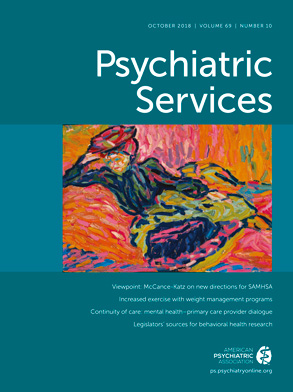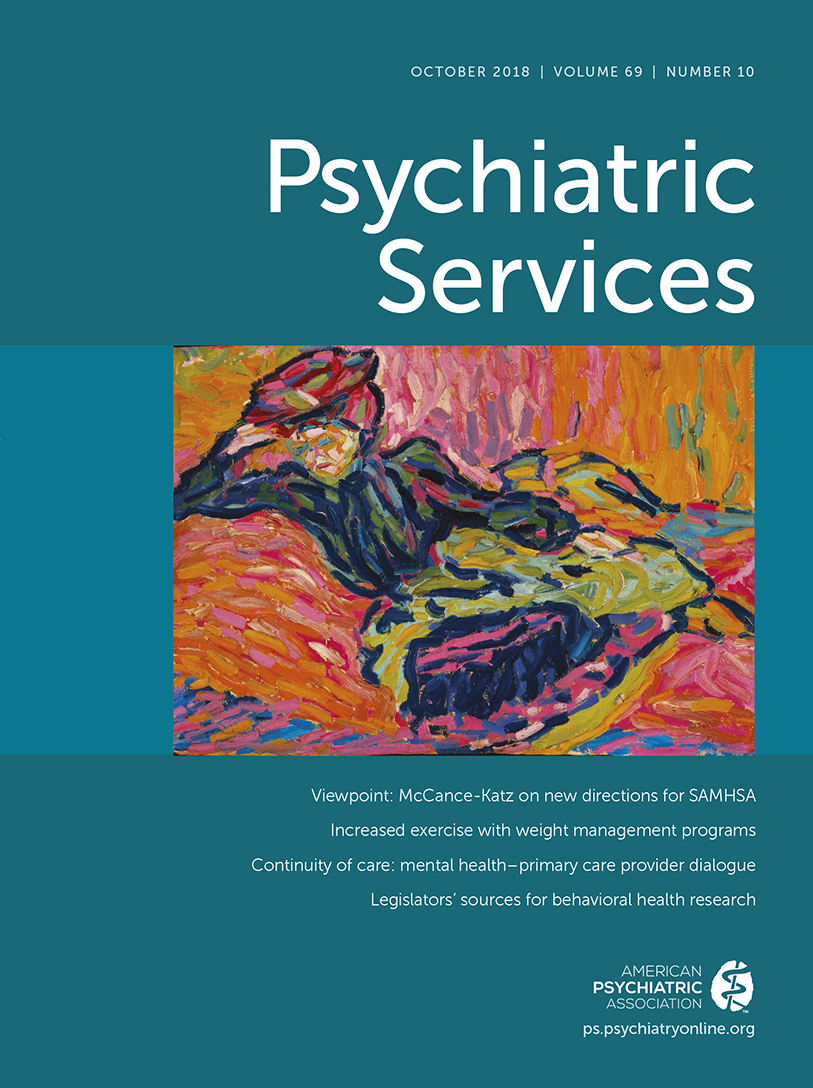These are important times for addressing behavioral health issues—specifically, the mental and substance use disorders that affect over 64 million Americans every year. The enactment of the 21st Century Cures Act brought into sharp focus the importance of these issues in the lives of individuals, families, communities, and the nation. Never in the history of this country has there been a time of greater need for attention to these issues. We are in the grip of an opioids crisis characterized by addiction and death such as we have never seen. Too often affecting our young people, the consequences of untreated mental illness and addiction have been tragic, frequently associated with violence and death.
The Cures Act codified the extensive areas of attention to mental and substance use disorders and their treatment, which must become part of our national fabric. Further, the Cures Act created the position I now hold—the Assistant Secretary for Mental Health and Substance Use—to oversee the work of the Substance Abuse and Mental Health Services Administration (SAMHSA) and the collaborative work of other departments and agencies to ensure that the needs of Americans with behavioral health issues are met and that the workforce is expanded and prepared to address mental and substance use disorders by using best and evidence-based practices.
I came to the role of assistant secretary having served a two-year contract with SAMHSA as its first chief medical officer. I left the position because I was greatly concerned that SAMHSA was not meeting the needs of Americans living with serious mental illness. However, having been at the agency allowed me to come into this new role with very clear ideas about what had to change and, more important, how to effect change given the substantial burdens of federal bureaucracy. All that I have worked for over these past months has been supported by President Trump, who cares deeply about issues of serious mental illness, and by his administration. I also have had the opportunity to work with Alex Azar, secretary of the Department of Health and Human Services (DHHS), who is also concerned for Americans living with mental and substance use disorders and who has supported the change under way at SAMHSA to better serve the American people.
Prioritizing the Training of Health Care Practitioners
I can summarize my overall approach to this position as one of prioritizing the training of health care practitioners to provide evidence-based treatment and technical assistance to provider organizations that will help to ensure the modernization of the care and delivery of mental and substance use disorder services. All other initiatives—and there are many—stem from this foundation. This emphasis on training requires a transformation of the SAMHSA approach to “evidence-based programs and practices.” Most programs listed by SAMHSA as evidence based included a narrow swath of offerings submitted by developers and frequently supported by few controlled studies and quasi-experimental methods with a menu of charges for training and use of such programs. We are now in the process of establishing a national system of practical training on topics in behavioral health that can be requested by any organization or provider with a focus on establishing local trainers familiar with the specific needs of a region. Previously, SAMHSA grantees could use their funds to purchase programs listed on the former National Registry of Evidence-Based Programs and Practices. What if a program was not fortunate enough to be a SAMHSA grantee? For many (probably most), these so-called evidence-based programs and practices would be unaffordable and unsustainable. Frankly, given the system that was in place for 20 years, I am not surprised that so few programs utilize evidence-based practices, which is to the detriment of clinical care needs for some of our most vulnerable citizens.
Building a National System of Technical Assistance and Training
SAMHSA is working to completely restructure technical assistance and training. We are building a national system of resources that will be available at no cost, or at most low cost (e.g., payment for continuing education credits, small fees for training taking place at venues that must be rented), to any individual or program wishing to take advantage of them. SAMHSA grantees will now have funding built into their grants that permits them to identify training or technical assistance needed and to purchase that training should it not be available through our national network. Funds not used for training can be used to provide more services as described in the grant proposal.
SAMHSA is building a technical assistance and training program that starts with the National Mental Health and Substance Use Policy Laboratory’s establishment of a new Website that catalogs evidence-based practices and programs in areas of mental and substance use disorder services (
www.samhsa.gov/ebp-resource-center). We announced in July 2018 that the American Psychiatric Association has been selected as the grantee for the national Clinical Support System for Serious Mental Illness. This program will provide a wide array of resources, including online training, webinars, and classroom-style offerings that will train on evidence-based approaches to serious mental illness. A component of the clinical support system will focus on pharmacotherapy for serious mental illness, including the use of clozapine for treatment-resistant schizophrenia, the use of long-acting antipsychotics, and ways to address metabolic syndrome. The clinical support system will also offer a course on assisted outpatient treatment (AOT). This system is replicated in the opioids area with the well-established Providers’ Clinical Support System for Medication-Assisted Treatment (
www.pcssmat.org), which provides the majority of the Drug Abuse Treatment Act (DATA) waiver trainings, ongoing continuing education, and mentoring for practitioners.
The largest change in technical assistance is the establishment of new technology transfer centers in prevention of substance use disorders and serious mental illness. SAMHSA has issued funding announcements encouraging applications for these centers, which will be placed in each of the 10 DHHS regions, thus providing national coverage, as well as for centers focused on tribal needs and Hispanic/Latino needs. These newly established centers will work collaboratively in their regions, with each other, and with the existing addiction technology transfer centers to ensure that training needs of health care providers are being met. With these centers, all health care providers and organizations can participate in educational programs that will improve their abilities to serve the mental health and substance use disorder needs of Americans, and in doing so, we will serve the nation rather than only select grantees.
Funding Innovative Programs
SAMHSA will continue to fund innovative programs to address the major issues of our time, including the epidemic of opioid misuse, abuse, addiction, overdose, and death. SAMHSA received a large increase in the fiscal year 2018 budget that expands funding of programs with track records of success, including drug courts; programs to assist pregnant and postpartum women with opioid use disorder; programs of naloxone purchase, distribution, and first-responder training; peer specialist training; minority fellowship funding for physicians and psychologists working in addictions; and funding to the states to support prevention, treatment, and recovery services aimed at addressing the opioids issues in their locales. Our education and training programs and product development play a crucial role in the success of these undertakings. SAMHSA will also, for the first time, provide funding to support pregraduate education that will lead to DATA waiver eligibility for physicians, nurse practitioners, and physician assistants. This is critical to mainstreaming training in the addictions for students going into health care professions and for expanding the mental health and substance use disorders workforce. SAMHSA also will expand its prevention work related to other substances, with an emphasis on risks associated with marijuana use by young people.
A New Approach to Serious Mental Illness
SAMHSA will take a new approach to serious mental illness, shifting efforts in the agency to focus on major issues affecting this population. These efforts will include providing evidence-based psychiatric treatment and supporting a collaborative care model with community resource providers, including peers and organizations that provide recovery supports. SAMHSA will receive support for these efforts through the Interdepartmental Serious Mental Illness Coordinating Committee, which is a public-federal partnership that aims to improve services to adults living with serious mental illness and to young people living with serious emotional disturbance and their families. SAMHSA will continue and expand programs designed to address mental illness in America, including suicide, which continues to take tens of thousands of lives every year. SAMHSA will help expand suicide prevention programs that also fund organizations that implement Zero Suicide, a program to train health care providers on how to ask about suicidality and make safety plans to get people to the necessary care. SAMHSA continues its mental health court programs and has new programs offering diversion prior to arrest. AOT is now funded in several sites, but more must be done to educate providers and the public about the value of AOT programs with enriched psychosocial services. Further, a new program of assertive community treatment will be funded in 2018. One of the major successes we have had recently at SAMHSA was the appropriation of additional funding for Certified Community Behavioral Health Clinics, which require integrated care for mental and substance use disorders as well as for general health care. These programs, already established as demonstration programs in eight states, will be expanded to community organizations that will be able to provide the required integrated services and crisis services; peer and family supports; and psychiatric evaluation, diagnosis, treatment, and rehabilitation services. This is a very exciting development because integrated care is the model that should be pursued for American health care in general but is particularly important for those with disabling mental disorders.
These are important times for establishing new models that will use evidence-based care to manage the needs of Americans experiencing serious mental illness and substance use disorders. SAMHSA will play a key role in establishing these new care approaches and in preparing the behavioral health workforce. It is personally gratifying for me to have the opportunity to serve our people in this new role. I look forward to both the challenges and the metamorphosis of our health care system for those living with mental and substance use disorders in the United States.

